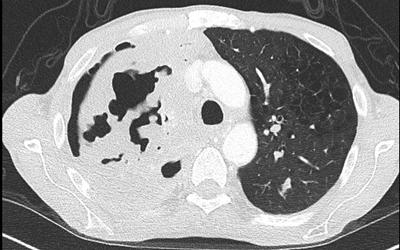New study in the fight against TB

A study at the University of Southampton will give new insight into how the human body fights tuberculosis (TB) infection.
TB is a lung infection that spreads by people coughing. It causes excessive inflammation in the lung and continues to cause disease worldwide, killing more than 4,000 people every day, and is becoming progressively more resistant to the antibiotics used to treat it. New approaches to control the disease are urgently needed as standard vaccination, diagnosis and treatment have remained largely unchanged for 40 years.
Dr Salah Mansour, Principal Research Fellow at the University, will analyse a protein called CD1c which binds to fatty substances on bacterial cells (like TB) in order for human immune cells (called T-cells) to recognise them and destroy them. These T-cells can then protect the body from future infection.
However, many T-cells also recognise CD1c which are bound to fatty substances on healthy cells. It is not understood how these T-cells that exhibit dual recognition of our own cells and bacteria, work within the context of human tuberculosis infection.
Dr Mansour said: “I will use a range of cutting edge scientific approaches to establish what role CD1c has in recognising and fighting TB. I hope that the knowledge created by this research project will help to direct future, more successful treatments for TB.”
The study, a New Investigator Research Grant funded by the Medical Research Council, involves academics from Chemistry and Biological Sciences at the University of Southampton, as well as developing new collaborations with the Crick Institute and the Africa Health Research Institute, Durban.